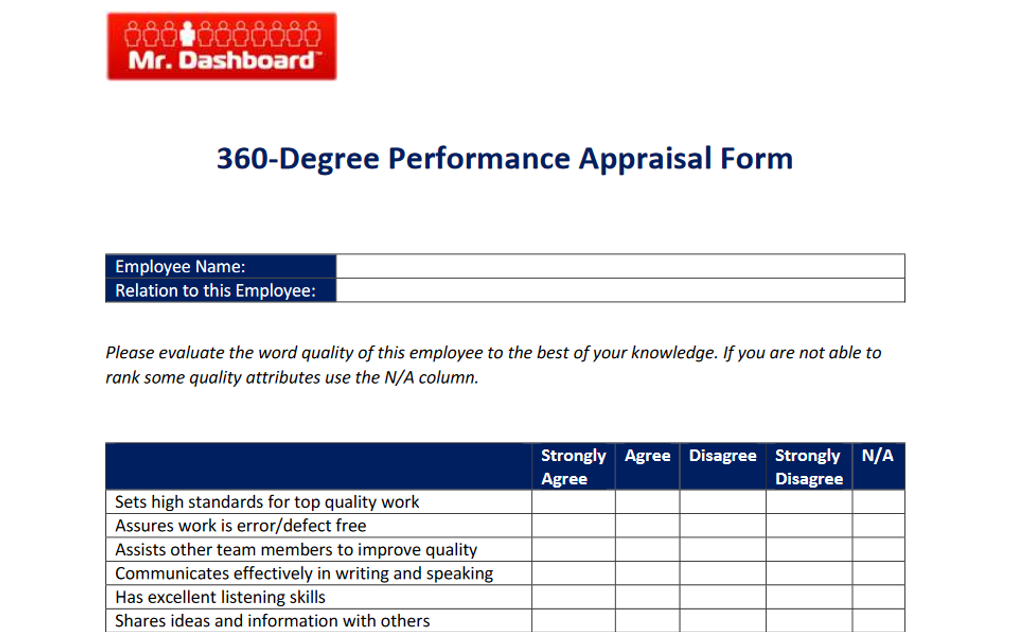Understanding the Importance of Employee Performance Appraisals
Employee performance appraisals are a vital tool for both managers and employees. They provide a structured opportunity to evaluate past work, clarify expectations, and align individual goals with overall company growth. When done effectively, appraisals help employees understand their strengths and areas for improvement in day-to-day responsibilities.
Successful performance appraisals influence workforce motivation, development, and productivity. They also foster open communication, strengthen manager-employee relationships, and clarify career paths.
Key Benefits of Performance Appraisals
- Clear Communication: Addresses expectations, goals, and feedback transparently.
- Employee Motivation: Recognizes achievements and sets clear objectives to inspire improvement.
- Identifying Development Needs: Highlights skills gaps and training opportunities for career growth.
- Alignment with Business Goals: Ensures individual tasks support company objectives and culture.
- Accountability: Encourages employees to take ownership of their performance.
How Performance Appraisals Impact the Workforce
- Enhances employee clarity about job roles.
- Boosts productivity by focusing on key performance areas.
- Improves teamwork and collaboration through shared understanding of goals.
- Strengthens employee engagement and retention.
- Provides valuable data to guide promotion or succession planning.
Preparing Effectively for Performance Reviews
A well-prepared performance appraisal session is critical for driving meaningful results. Here are key steps supervisors should take:
- Gather Documentation: Keep notes on achievements, challenges, and feedback during the review period.
- Review Job Description: Ensure clarity on responsibilities and expectations previously set.
- Set SMART Goals: Create Specific, Measurable, Achievable, Relevant, and Time-bound objectives for the employee.
- Create a Development Plan: Outline steps for skill improvement and career progression.
- Prepare to Listen: Encourage employees to share their perspectives openly during the review.
Incorporating 360-Degree Feedback
Using 360-degree performance appraisals that include feedback from peers, subordinates, and managers can provide a more comprehensive view of employee performance.
- Promotes self-awareness and holistic development.
- Encourages teamwork and collaboration across levels.
- Highlights blind spots and strengths unbiased by a single viewpoint.

Industry-Specific Examples of Performance Appraisals
Retail Sector
- Focus on customer service skills and sales targets.
- Evaluate punctuality and teamwork during peak hours.
- Use appraisals to design incentive plans tied to measurable results.
Technology Sector
- Assess problem-solving capabilities and coding standards.
- Encourage continuous learning through certifications and workshops.
- Align individual project goals to overall innovation metrics.
Healthcare Sector
- Emphasize patient care quality and compliance with procedures.
- Use appraisals to identify leadership potential for team leads.
- Promote continuous education on industry regulations and safety.
Step-by-Step Guide to Conducting an Effective Performance Appraisal
| Step | Action | Tips |
|---|---|---|
| 1 | Prepare Documentation | Collect specific examples of performance and goals from the review period. |
| 2 | Review Job Description and Prior Goals | Clarify expectations and compare actual results. |
| 3 | Schedule a Private Meeting | Ensure sufficient time and a distraction-free setting. |
| 4 | Discuss Performance Objectively | Use facts and examples; invite employee insights. |
| 5 | Set New Goals and Development Plan | Align objectives with career aspirations and business needs. |
| 6 | Document Outcomes | Summarize agreements and follow-up actions. |
| 7 | Follow Up Regularly | Monitor progress and provide ongoing feedback. |
Action Items Checklist for Managers
- Maintain records of employee achievements throughout the year.
- Use appraisal meetings to recognize accomplishments.
- Address performance gaps with constructive feedback.
- Align individual goals to company objectives.
- Promote employee accountability and self-development.
- Encourage open dialogue and employee input.
Effective employee performance appraisals are the cornerstone of a productive workforce and business success. To strengthen your appraisal process and workforce management, explore comprehensive growth strategies and financial tools that empower your leadership.
Browse our Small Business Growth Strategy Pack for expert guidance on boosting employee performance, managing growth, and achieving your business goals.






























